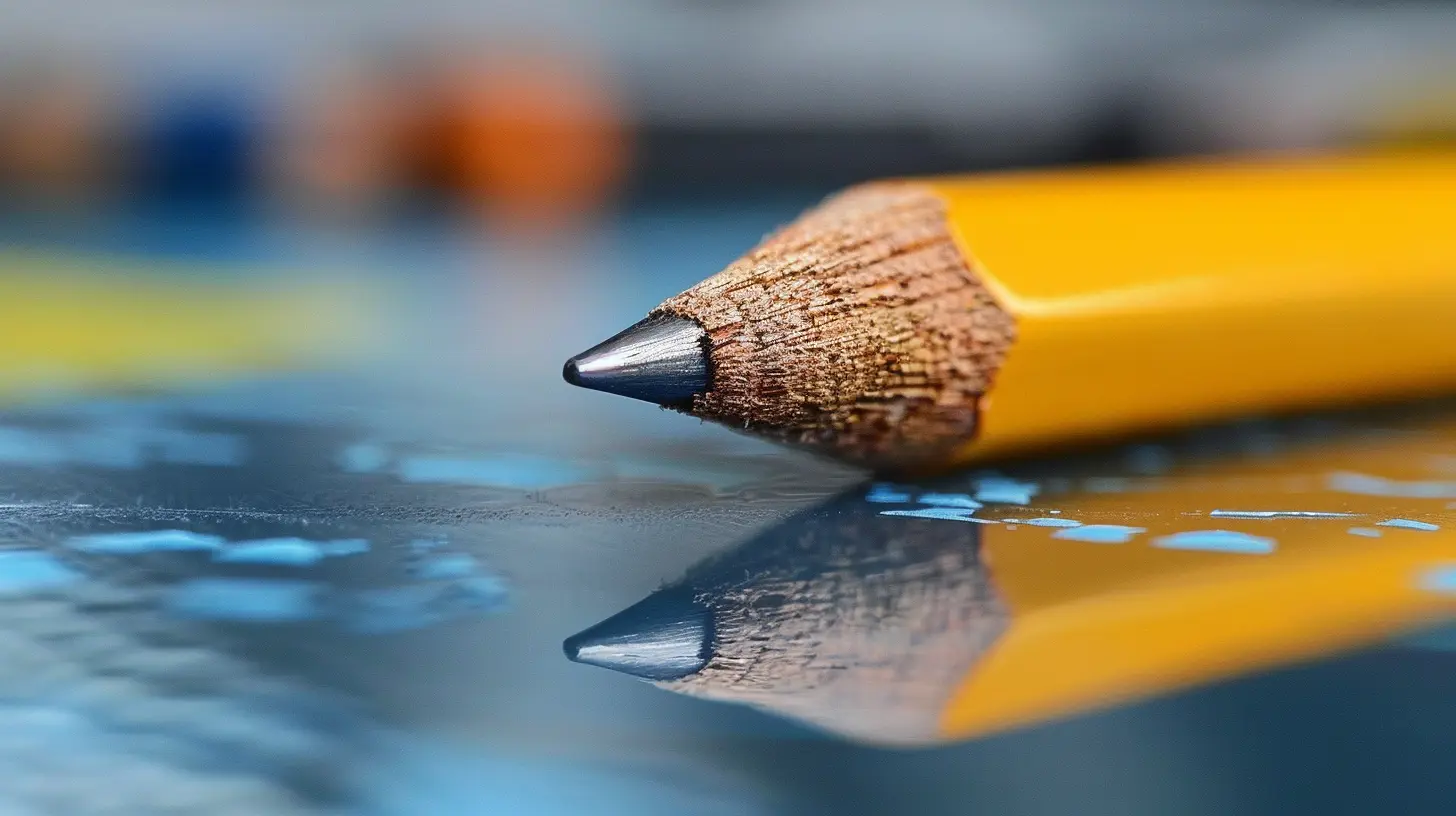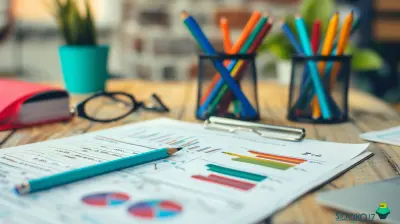The Role of Reflection in Formative Assessment
1 April 2025
Formative assessment is all about improving learning in real-time. But here's the thing—assessment isn’t just about tests and quizzes. One of the most underrated yet powerful tools in formative assessment is reflection.
Think about it. When you hit a roadblock while learning something new, what do you do? You take a step back, think about what went wrong, and figure out how to get better. That’s reflection in action.
But how does reflection fit into formative assessment? And why is it so crucial? Let’s break it down. 
What Is Formative Assessment?
Before we dive into the role of reflection, let’s first understand formative assessment. Unlike traditional assessments that focus on grading and evaluation, formative assessment is an ongoing process that helps students and teachers adjust learning strategies based on immediate feedback.It's like having a GPS instead of a paper map. A traditional test tells you where you are after the journey, but formative assessment guides you along the way, making sure you don't go too far off track.
Some common formative assessment strategies include:
- Quizzes and polls – Quick, low-stakes checks for understanding
- Think-pair-share – Discussing ideas with a partner to process new concepts
- Exit tickets – Short reflections or answers at the end of a lesson
- Self- and peer-assessments – Evaluating one's own or a classmate's work
But among all these, reflection stands out as a game-changer. 
What Is Reflection in Learning?
Reflection in learning is the act of thinking critically about one's own understanding, progress, and learning strategies. It helps students recognize what they know, what they don’t, and what they need to do differently.Ever had one of those moments when you suddenly realize why you kept making the same mistake? That "aha!" moment often comes from reflection.
When students take time to reflect, they:
- Develop a deeper understanding of the subject
- Recognize their strengths and weaknesses
- Improve their critical thinking and problem-solving skills
- Take more ownership of their learning
But how exactly does reflection fit into formative assessment? 
The Role of Reflection in Formative Assessment
1. Encourages Active Participation
Reflection gets students actively involved in their own learning. Instead of just passively absorbing information, they analyze their progress, identify gaps, and set goals.For example, after solving a math problem, a student might ask:
"Did I follow the right steps? Where did I go wrong? How can I avoid this mistake next time?"
Self-questioning like this strengthens learning and deepens understanding.
2. Promotes Self-Regulation
Students who reflect regularly become better at self-regulation—the ability to manage their own learning process.Picture a student working on an essay. If they take a moment to reflect, they might realize:
- They need to improve their argument
- Their grammar could be sharper
- They should structure their ideas more effectively
This self-awareness helps them make real-time improvements rather than waiting for feedback from a teacher.
3. Enhances Teacher-Student Communication
When students reflect and share their thoughts, teachers get valuable insights into students' struggles and achievements.Imagine a teacher reading students’ reflective journal entries. They might notice that several students are struggling with the same concept, signaling the need for reteaching or a new approach.
This two-way communication ensures learning remains a collaborative process rather than a one-sided activity.
4. Encourages a Growth Mindset
Reflection helps students develop a growth mindset—the belief that intelligence and abilities can be improved with effort.It shifts the focus from “I failed” to “I need to work on this”, making challenges seem like opportunities rather than obstacles.
For instance, if a student does poorly on a science quiz, instead of thinking, "I'm just bad at science," they might reflect: "I need to review the formulas again and practice more problems."
This mindset fosters resilience and a positive attitude toward learning.
5. Leads to More Meaningful Learning
Ever studied for a test, passed it, and then forgotten everything the next week? That happens when learning is surface-level—just memorizing facts without true understanding.Reflection promotes deep learning by helping students connect new knowledge with what they already know.
For example, a history student reflecting on a lesson about revolutions might think:
"How does this compare to modern social movements? Are there any similarities?"
This kind of thinking cements learning and makes it more relevant. 
Strategies for Encouraging Reflection in Formative Assessment
Now that we understand why reflection is important, how can we integrate it into formative assessment effectively? Here are some practical strategies:1. Reflection Journals
Encourage students to keep journals where they write about:- What they learned
- What they found challenging
- What strategies helped them understand the lesson
This practice helps students track their growth over time.
2. Exit Tickets
At the end of a lesson, students can answer quick reflection questions like:- What was today’s key takeaway?
- What’s something you're still confused about?
- How can you apply today’s lesson outside the classroom?
This gives teachers insight into student understanding and helps adjust future lessons.
3. Self-Assessment Checklists
Providing students with a checklist can help them evaluate their own learning. For example:✅ I understand the key concepts.
✅ I can explain the topic in my own words.
✅ I need more practice with this concept.
This encourages honest self-reflection and goal setting.
4. Think-Pair-Share
Pairing students to discuss what they’ve learned helps them articulate their reflections. When they explain something to a peer, they reinforce their understanding.5. Teacher-Led Reflection Discussions
Regular class discussions where students talk about their learning experiences create a reflective classroom culture.Questions like "What was the biggest challenge you faced in today’s lesson?" or "What strategy helped you the most?" can guide meaningful conversations.
Reflection: A Key Element in Lifelong Learning
Reflection isn't just useful in the classroom—it's a lifelong skill. Whether you're learning a new language, picking up a new hobby, or improving a skill at work, taking time to reflect helps you get better.In the context of formative assessment, reflection:
✅ Encourages active learning
✅ Builds self-awareness and self-regulation
✅ Strengthens teacher-student relationships
✅ Promotes a growth mindset
✅ Leads to deeper, long-lasting learning
By making reflection a regular part of formative assessment, educators can empower students to take charge of their own learning journey.
So the next time you learn something new, take a moment to pause and reflect—it might just transform how you learn!
all images in this post were generated using AI tools
Category:
Formative AssessmentAuthor:

Zoe McKay
Discussion
rate this article
7 comments
Siena McVicar
Reflection is the cornerstone of effective learning! Embracing formative assessment as a reflective practice empowers students to deepen their understanding, enhance critical thinking, and unlock their full potential. Let’s inspire growth through thoughtful reflection!
May 9, 2025 at 4:05 AM

Zoe McKay
Thank you for highlighting the importance of reflection in formative assessment! It truly is vital for enhancing student learning and fostering critical thinking. Your perspective on inspiring growth through reflection resonates deeply with our goals.
Layla Barlow
This article highlights an intriguing aspect of formative assessment! Reflective practice seems essential for deeper learning. I’m curious about the specific strategies educators can use to encourage meaningful reflection in students. How can we weave this into everyday teaching?
April 18, 2025 at 3:47 AM

Zoe McKay
Thank you for your insightful comment! Strategies like guided questioning, reflective journals, and peer feedback can effectively incorporate meaningful reflection into everyday teaching. These methods encourage students to think critically and engage deeply with their learning.
Danica Stevens
This article compellingly underscores reflection as a cornerstone of formative assessment, enhancing student ownership of learning. However, it could delve deeper into practical strategies for educators to effectively integrate reflective practices within diverse classroom contexts to maximize student engagement and growth.
April 17, 2025 at 7:14 PM

Zoe McKay
Thank you for your insightful feedback! I appreciate your suggestion and will explore practical strategies for integrating reflective practices in diverse classroom contexts in future discussions.
Zarev Holland
This article highlights the crucial role of reflection in formative assessment. It reminds us that taking the time to evaluate our learning processes not only enhances understanding but also fosters growth. Embracing reflection can transform assessment into a meaningful journey, turning challenges into valuable learning opportunities. Great insights!
April 17, 2025 at 10:25 AM

Zoe McKay
Thank you for your thoughtful comment! I'm glad you found the insights on reflection in formative assessment valuable. Embracing this process truly does enhance learning and growth.
Savannah Coleman
Oh sure, because who doesn’t love reflecting on their mistakes during a pop quiz?
April 9, 2025 at 11:17 AM

Zoe McKay
I understand that it can feel daunting, but reflection during assessments can truly enhance learning and growth.
Peyton Duke
Great article! Emphasizing reflection in formative assessment truly enhances learning—it's such a vital tool for growth and improvement.
April 3, 2025 at 11:43 AM

Zoe McKay
Thank you! I'm glad you found the emphasis on reflection valuable—it's essential for fostering growth in learners.
Kristy Shaffer
Reflection enhances formative assessment by promoting deeper understanding and self-awareness, ultimately improving student learning outcomes.
April 1, 2025 at 11:46 AM

Zoe McKay
Thank you for your insightful comment! I completely agree—reflection is key in formative assessment, as it fosters deeper learning and self-awareness in students.
MORE POSTS

How to Make Lifelong Friends While Studying Abroad

The Role of Continuous Learning in Effective Educational Leadership

Top Hacks for Personalizing Learning in Virtual Classrooms

Virtual Reality in Education: Immersive Learning for the Future

Using Rubrics for Consistent and Transparent Formative Feedback

Supporting Gifted Students in Rural or Underserved Areas